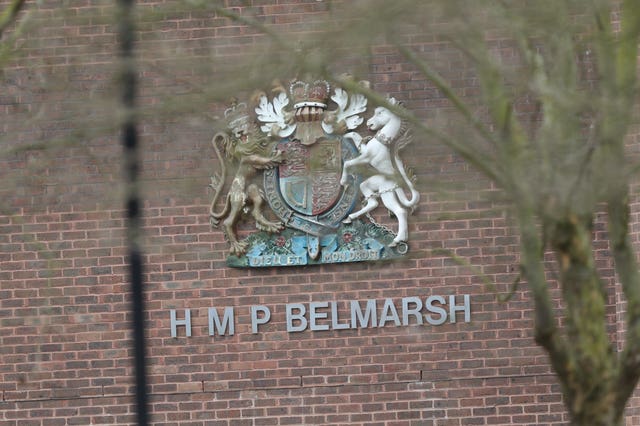WikiLeaks founder Julian Assange has spoken in public for the first time since being released from prison after he struck a deal with the United States.
He travelled from Australia to Strasbourg to address a human rights committee (Pace) of the Council of Europe, which has said in a report that he was a political prisoner.
He described his cell in Belmarsh Prison, where he was held for several years as he fought extradition to the US, as a “dungeon”.
He apologised for his “faltering” address, saying he is still trying to adjust after years of isolation had “taken its toll”.

Legal action against Mr Assange started in 2010 after hundreds of thousands of leaked documents about the Afghanistan and Iraq wars were published.
Mr Assange, accompanied by his wife Stella and WikiLeaks editor Kristinn Hrafnssson, said: “Justice for me is now precluded as the US government insisted in writing into its plea agreement that I cannot file a case at the European Court of Human Rights or even a Freedom of Information Act request over what it did to me as a result of its extradition request.
“I want to be totally clear: I am not free today because the system worked.
“I am free today (after) years of incarceration because I pled guilty to journalism.
“I pled guilty to seeking information from a source.
“I pled guilty to obtaining information from a source, and I pled guilty to informing the public what that information was.
“I did not plead guilty to anything else.
“I hope my testimony today can serve to highlight the weakness, the weaknesses of the existing safeguards, and to help those whose cases are less visible, but who are equally vulnerable.”
Mr Assange said he is still adjusting to being freed and having to cope with things like the “spooky” sound of electric cars.
He said freedom of expression is at a “dark crossroads”.
“The criminalisation of news-gathering activities is a threat to investigative journalism everywhere. I was formally convicted by a foreign power for asking for, and receiving and publishing, truthful information about that power while I was in Europe.
“The fundamental issue is simple – journalists should not be prosecuted for doing their jobs. Journalism is not a crime.”
Mr Assange told the committee he was a political prisoner, saying: “The political basis for the US government’s retributive acts against me was in relation to publishing the truth about what the US government had done. Then, in a formal legal sense, once the US proceeded with its legal retribution, it used the Espionage Act, a classic political offence.”
In a question and answer session with members of the committee, Mr Assange said the extradition treaty between the UK and UK was one-sided, adding: “Nine times as many people are extradited to the US from the UK than the other way around.
“Protection for US citizens being extradited to the UK is stronger.”
Mr Assange was given a standing ovation by committee members at the end of the 90-minute session.
He closed his remarks by saying: “In 2010 I was living in Paris. I went to the United Kingdom and never came back – until now. It’s good to be back.
“It’s good to be amongst people who, as we say… it’s good to be amongst friends.
“I would just like to thank all the people who have fought for my liberation and who have understood, importantly, that my liberation was coupled to their own liberation, and that when one of us falls through the cracks, soon enough, those cracks will widen and take the rest of us down.
“Keep up the fight.”




Why are you making commenting on The National only available to subscribers?
We know there are thousands of National readers who want to debate, argue and go back and forth in the comments section of our stories. We’ve got the most informed readers in Scotland, asking each other the big questions about the future of our country.
Unfortunately, though, these important debates are being spoiled by a vocal minority of trolls who aren’t really interested in the issues, try to derail the conversations, register under fake names, and post vile abuse.
So that’s why we’ve decided to make the ability to comment only available to our paying subscribers. That way, all the trolls who post abuse on our website will have to pay if they want to join the debate – and risk a permanent ban from the account that they subscribe with.
The conversation will go back to what it should be about – people who care passionately about the issues, but disagree constructively on what we should do about them. Let’s get that debate started!
Callum Baird, Editor of The National
Comments: Our rules
We want our comments to be a lively and valuable part of our community - a place where readers can debate and engage with the most important local issues. The ability to comment on our stories is a privilege, not a right, however, and that privilege may be withdrawn if it is abused or misused.
Please report any comments that break our rules.
Read the rules hereLast Updated:
Report this comment Cancel